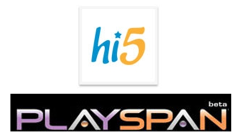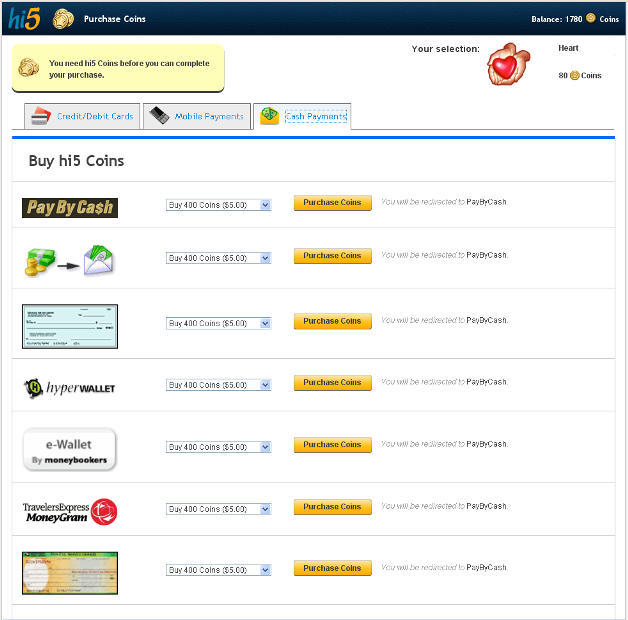 San Francisco-based hi5, which operates the third largest social networking service in the world, is announcing a partnership with PlaySpan today in an effort to get more revenue out of its 60+ million members. PlaySpan, famously founded by a 5th grader two years ago, will henceforth be powering micropayments for virtual goods and premium content sold on the social network.
San Francisco-based hi5, which operates the third largest social networking service in the world, is announcing a partnership with PlaySpan today in an effort to get more revenue out of its 60+ million members. PlaySpan, famously founded by a 5th grader two years ago, will henceforth be powering micropayments for virtual goods and premium content sold on the social network.
Two of PlaySpan’s payment solutions will be used (PayByCash and Ultimate Game Card), getting the most out of the variety of payment methods used across the globe, which is essential for hi5 since the large majority of its users are located outside the U.S (about 40% speaks Spanish, for example). The company’s subsidiary PayByCash is able to support approximately 80 payment methods in 180 countries and boasts an extremely low fraud rate, and the addition of hi5 to its customer reference list further validates the alternative micro-payment platform.
Hi5 will also offer its subscriber base the ability to buy and use PlaySpan’s Ultimate Game Card, a pre-paid game card available for purchase online and in more than 21,000 retail stores across the U.S. and Canada (and apparently soon expanding to other countries).
For actual transactions on the social network, the company continues to bet on hi5 Coins (which can now be paid with using PayByCash), a virtual currency it launched late last year, which I’ve personally always considered a strange move considering it requires users to get accustomed to using a currency that can’t be used for anything else outside of the network while standard ‘gift credits’ seem to work just as well.

Either way, the company is clearly trying to ramp up its revenue streams, recently launching a casual gaming section which hi5 said would prove very important for making money in the long run, and partnering with Paymo to power mobile payments for virtual goods. The partnership with PlaySpan once again shows that monetization through anything but advertising is the key focus over at hi5, and recent reports show that that may be the best strategy worth pursuing.
You may remember Habbo, which we reported pulled in $74 million in revenues last year, mostly from virtual goods, or the market analysis on Chinese social networks, whose business models have long relied mostly on sales of virtual gifts rather than online advertising. Expect to see more of these reports in the future.
Finally, it’s also worth noting that hi5 has been on a cost-cutting spree, recently slashing an estimated 50% of its workforce.